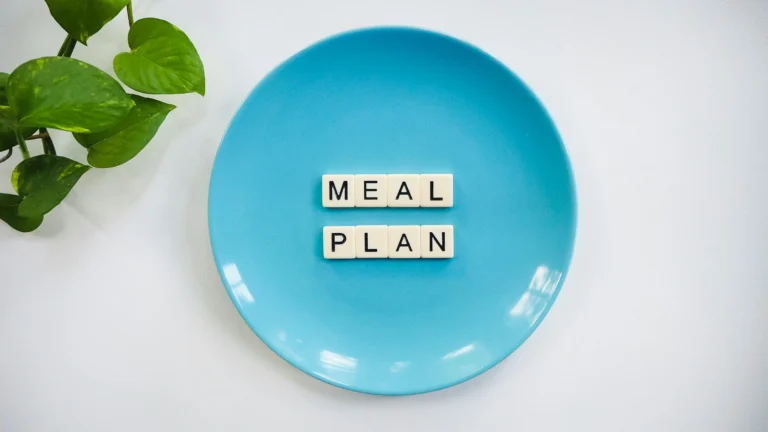Meal Planning for Busy Families: Quick and Easy Solutions
Busy families who have to balance work, school, extracurricular activities and everything in between, meal planning is very important. It saves time, reduces stress and ensures that everyone has a healthy meal at the end of the day. This article will provide some quick and easy solutions for those busy families who may need help with their meal plans.
01. Advantages of Meal Planning
Meal planning benefits families with packed schedules in many ways. It gives structure to meals throughout the week so you don’t have to decide last minute on what to cook or where to eat out. Here are some of them:
- Saves time: Planning your meals ahead can save you lots of time during the week because you won’t have go make long trips at supermarkets neither spend hours figuring out what dish should be prepared each day.
- Cost effective: Meal planning helps to avoid buying unnecessary groceries, reduce food waste and save money.
- Healthy eating: When there’s a plan in place it becomes easier for one make healthier food choices thereby avoiding fast foods or unhealthy snacks altogether.
- Stress reliever: After having worked all day long – most probably – nobody feels like thinking about cooking anything up let alone deciding what exactly they want cooked; this is where meal planning comes into play by doing away with such anxieties especially after a hard day’s work either at school or employment place.
02. Obstacles Faced by Busy Families
Busy families often find themselves struggling to maintain regular meal planning due to various challenges that arise as a result of their busy schedules. Among the most typical issues are the following ones:
- Time Constraints: When you have a lot on your plate, it can be difficult to find time for everything including planning what you will eat, shopping for groceries and cooking.
- Fussy Eaters: Different members of the family having different food preferences makes it hard to come up with dishes that will satisfy everyone.
- Unexpected Events: Sometimes life happens and things don’t go as planned; this may interfere with all your plans including planning for meals.
- Poor Cooking Skills: Not every person is well-versed in culinary arts hence they may lack confidence needed when coming up with meal ideas.
03. Tips for Successful Meal Planning
To tackle these problems, there are certain strategies that can be applied by busy families in order to effectively plan meals which are easy to follow and can be adjusted according to changes in schedule. Below are some steps towards successful meal planning:

1. Come Up with a Simple Outline
Design a basic template for your meal plan that has sections allocated for breakfasts, lunches, dinners and snacks. This layout can be modified depending on what works best for you and your loved ones at any given point in time.
2. Make a plan for one week at once.
Planning one week at a time is manageable and leaves room for change. Pick a day to plan meals, using this time to make a shopping list and meal prep schedule.
3. Get the whole family involved.
Meal planning can be fun when everyone participates. Ask family members what their favorite meals and snacks are so that no one is disappointed with the weekly menu.
4. Keep it simple.
For busy families, simplicity is key in meal planning. Opt for meals that are quick to prepare with few ingredients needed. One-pot dishes, sheet pan dinners, and slow cooker recipes can cut down on cooking time and cleanup.
04. Quick and Easy Meal Ideas
These quick and easy meal ideas are great for families on the go:

1. One-Pot Pasta
Cook pasta along with vegetables and protein of your choice all in one pot. This dish can be easily customized and only requires minimal clean-up.
2. Sheet Pan Dinners
Place protein, veggies, and seasonings onto a baking sheet then roast everything together at once. This method works well during busy weekdays as it saves time for other chores.
3. Crock Pot Meals
Consider using a crock pot to cook meals all day while you’re at work, so they’re ready when you get home. Give recipes such as pulled pork, beef stew and chicken curry a try.
4. Freezer Friendly Meals
Prepare freezer-friendly meals ahead of time and store them in single-serve containers. Soups, stews and casseroles are great for this.
05. Time-Saving Meal Prep Techniques
Meal prep saves time throughout the week and ensures that you always have something healthy to eat on hand. Here are some pointers for effective meal preparation:
1. Cook in Batches
Cook large batches of food at once and then divide it into individual portions for each meal or snack time during the week. This works well with breakfasts like overnight oats or egg muffins, lunches like salads or wraps and proteins like grilled chicken.
2. Prepare Ingredients
Wash, chop and portion out ingredients such as fruits, vegetables and proteins into containers or bags so that they’re ready to be thrown together quickly later on.
3. Use Tools & Appliances
Utilize kitchen gadgets such as food processors, immersion blenders and Instant Pots to cut down on cooking times while still being able make delicious meals from scratch.
06. Work With Your Schedule
Finding time for meal planning can be tough when you have a lot going on. These strategies will help!
1. Plan around your timetable
Take a look at your family’s agenda when you’re meal planning. If some days are busier than others, go for something quick and easy. Save the more elaborate meals for days when you have more time to cook.
2. Properly use leftovers
Plan meals with leftovers in mind and get creative with them throughout the week. For example, you could turn that leftover roasted chicken into chicken salad or use it in a stir-fry.
3. Make grab-and-go snacks
Prepare snacks ahead of time for those busy mornings and afternoons. Think about healthy options like fruit, nuts or even homemade granola bars.
07. Keeping variety in your meals
To avoid getting bored with meal planning, it is important to keep variety in your meals. Here are some suggestions on how you can achieve this:
1. Regularly Rotate Recipes
Keep things interesting by introducing new recipes while regularly rotating the existing ones. You may as well consider trying out different cuisines or cooking methods so as to add more variety.
2. Play around with Ingredients
In order to make meals exciting all the time, try out various ingredients as well as flavors. Create different dishes by using new vegetables, proteins or spices.
3. Ensure Nutrient Balance
Ensure that your meal plan has a good mix of carbohydrates, proteins and healthy fats too.It helps provide different types of nutrients while keeping the food interesting
08. Staying Constant with Meal Planning
Consistency is key when it comes to being successful with meal planning. Here are some things to do to stay consistent:
1. Have Realistic Expectations
Set realistic expectations for how your meal planning will go. Know that not every meal needs to be perfect and it’s okay if you order takeout once in a while.
2. Keep Track of Your Progress
Use a meal planning journal or an app where you can track what you’re doing. This will help keep yourself accountable and allow for adjustments if necessary.
3. Remain Open-Minded
Life happens and sometimes things don’t go as we plan them, so be open-minded about your meals. If something doesn’t work out, don’t stress–just change it up and move forward.
09. Conclusion
Meal planning for busy families doesn’t have to be difficult or time-consuming. You can establish a routine based on this guide by employing strategic methods and tips which match the demands of your family while reducing stress levels caused by the process itself, focusing on simplicity during preparation stage, efficiency during cooking phase as well as flexibility throughout all stages of planning what should be eaten when where why how whom with whom etcetera etcetera(??) However, until you do it repeatedly; until then it remains just another idea among many others without any significance attached to its occurrence in daily life at home
10. Frequently asked questions
01. Why is meal planning important for people who are always busy?
Planning meals helps in saving time, reducing stress and ensuring healthier eating even when people are leading hectic lives.
02. What are some meal ideas that can be prepared fast by busy families?
Consider meals that can be cooked using one pot, sheet pan or slow cooker as well as freezer-friendly options which take less time.
03. How can families with little free time due to their busy schedules cope with time constraints when it comes to meal planning?
Organize your meal timetable based on your daily program; also, be creative with leftover foods and have quick snacks ready for those weeks that you will not have a minute to spare.
04. How do I ensure diversity in my meal plans?
Keep rotating the recipes you use, try different ingredients from time to time and make sure there is a mix of proteins, carbohydrates and good fats in each dish to keep things interesting.
05. Which methods work best during food preparation among families who have very tight programs all day long?
Preparing several batches at once while cooking, chopping up ingredients earlier on plus using kitchen appliances such as blenders can greatly simplify the process of getting meals ready quickly for such families.







